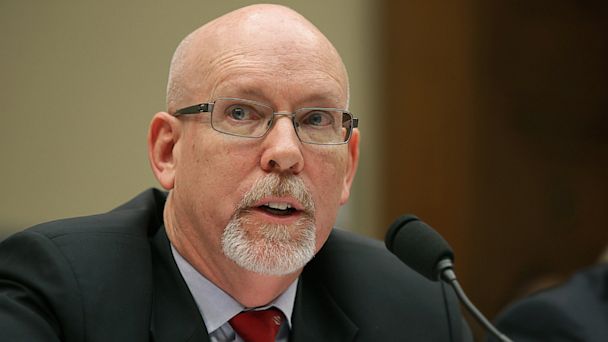Gregory Hicks: Hearing of Death of Christopher Stevens 'Saddest Moment' in My Career
In an exclusive interview with ABC's George Stephanopoulos, former Deputy Chief of Mission in Libya Gregory Hicks recalled being told of the death of then U.S. ambassador to Libya Christopher Stevens in Benghazi last year, characterizing it as the "saddest moment" in his career.
Hicks - who had a brief phone conversation only hours before with Stevens before the line went dead - was informed of his death by Libya's prime minister.
"He just says, 'I'm very sorry, Greg, to tell you this, but our friend Chris has passed on.' I think those were his words. There was deep remorse in his voice when he said it," said Hicks, who was in Tripoli when he first heard of the attack.
Stevens was one of four Americans killed Sept. 11, 2012 in Benghazi. Computer specialist Sean Smith and former Navy SEALs Tyrone Woods and Glen Doherty also died in the attack.
Hicks said he doesn't understand why more military resources were not sent to Benghazi after he notified State Department officials in Washington that the consulate was under attack.
"I don't know exactly what was available…And I still don't quite understand why…they couldn't fly aircraft over to Benghazi," he said.
"When I was a kid, I grew up watching western movies… the cavalry always came," Hicks said in an interview taped Friday for "This Week."
U.S. military officials have said there was no way to respond in time to help, but Hicks said he expected more

Chip Somodevilla/Getty Images
"I just thought that they would come," he said.
Hicks also told Stephanopoulos it may have been possible to save two of the men killed.
"Sadly…I think that Ambassador Stevens and Sean Smith, maybe not. Ty [Woods] and Glen [Doherty], of course, were killed in the mortar attacks that took place eight hours after the initial attack…It's possible they could have been saved, I think," Hicks said referring to the two former Navy SEALs working as CIA contractors in Libya.
Hicks, who has given Congressional testimony about events in Benghazi, is the only American official who was in Libya during the attack that has spoken publicly about what happened and told Stephanopoulos he has been punished for his openness by the State Department.
"I don't know why I was shunted aside, put in a closet, if you will," he said.
Asked for a response (that can be read in full below) a spokesman said the State Department has "not punished Mr. Hicks in any way" and that "the circumstances that led to his departure from Libya was entirely unrelated to any statements he may have made relating to the attack in Benghazi."
You can read State Department spokesman Alec Gerlach's full statement to ABC News below in bold italics.
Finally, Hicks told Stephanopoulos how those who died that night in Benghazi can be honored.
"We can't forget them, and we need to make sure that those people who are going out…into the world on our behalf have the tools that they need and the resources they need to do the job that they've been asked to do for the people of the United States," Hicks said.
The State Department has not punished Mr. Hicks in any way. We appreciate his exemplary service on the evening of September 11 and his long career as a member of the Foreign Service.
Although the State Department ordinarily does not discuss the details of personnel matters publicly, because he has alleged mistreatment, we will state generally that the circumstances that led to his departure from Libya was entirely unrelated to any statements he may have made relating to the attack in Benghazi. When Mr. Hicks voluntarily curtailed his assignment, he was in the position of finding another assignment in between standard assignment cycles. The Department made significant efforts to find him a new position at his level, including identifying an overseas position which he declined and succeeded in finding him a short-tour assignment in the Office of the Special Representative for Global Intergovernmental Affairs, pending the next assignment cycle. We continue to value his service and are working with him through the normal personnel process and assignment timetable to identify his next permanent assignment.
The State Department is deeply committed to meeting its obligation to protect employees and the State Department does not tolerate or sanction retaliation against whistleblowers on ANY ISSUE, including Benghazi.